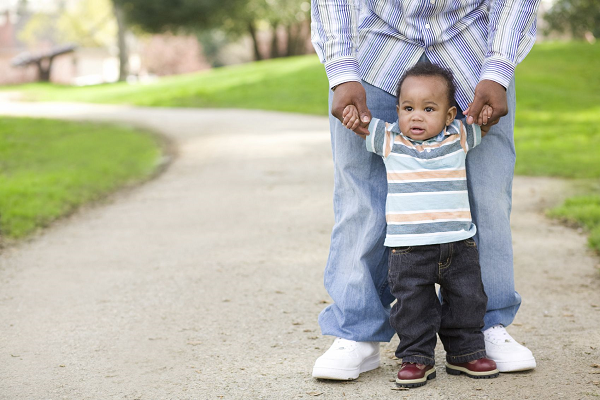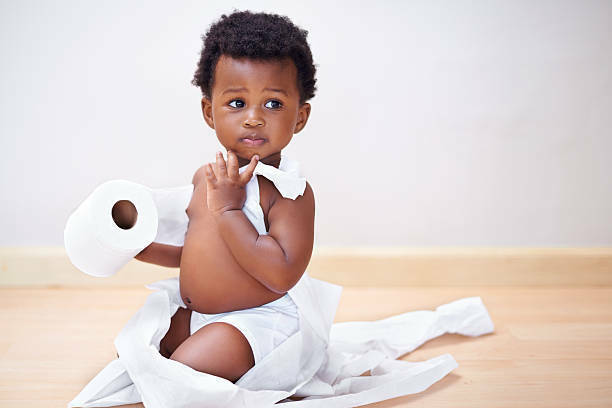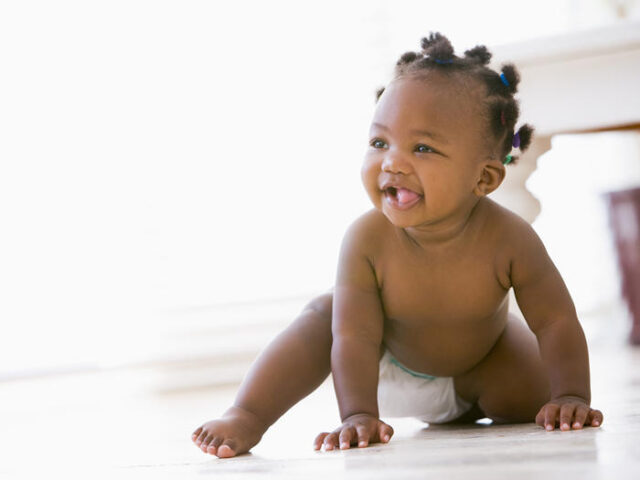Meeting milestones are important goals in the development of children. According to Sharon Smile, a developmental pediatrician at Holland Bloorview Kids Rehabilitation Hospital in Toronto said in an interview with Today’s Parents, that benchmarks never stop coming, “You pass one goalpost and there’s another and another.”
Parents get excited when their children are checking benchmarks off of the list; however, it is important not to get caught up and compare children’s development to each other. Everyone has their own timeline.
“Kids are always in a state of development,” says Kathryn Keely, division chief of community pediatrics at The Children’s Hospital of Eastern Ontario in Ottawa, in the same interview.“ A child feels the pressure and will balk at that activity.”

Here are five milestones and how you can help get your child ready for developmental success!
1. Starting Solids
Both the American Academy of Pediatrics and the Canadian Pediatric Society both recommend introducing solids to infants at around six months old, says Julia Celestini, a pediatric dietitian in Burlington, Ont. “It’s then that infants tend to be physiologically and developmentally ready for new foods, textures and methods of feeding.”
How to help:
Although the recommendation is six months old, not every child is physiologically ready to eat solid foods at this age. Parents need to watch for clues and and make sure that their child is physically ready. Look for manual dexterity and actual interest in the food.
2. Potty Training
Potty Training typically occurs between 18-monts-old to four-years-old. This is a hard one but, stay the course and remember not to start transitioning from diapers to the potty because you have decided that it is time.
How to help:
According to the experts in the Today’s Parents article, some ways for parents to help kids with this milestone includes: don’t get hooked on one form of training, don’t be alarmed if it takes longer to master “going number two, and make sure to clue into if they are self aware of wet versus dry…then, they are ready!

3. Phasing out “nap time”
Although many adults would vote to reinstitute nap time, generally speaking around the age of three to four-years-old, children stop taking naps. Many times, phasing out nap time is a part of the pre-kindergarten prep.
How to help:
Take your cues from your kids. If they are bright-eyed and bushy-tailed without extra sleep, then that is a great indicator that they are just fine without nap time. If they are irritable or seem tired, then they may not be getting enough sleep. If this is the case, take a look at their bedtime routine, an adjustment may need to be made.
4, Graduating from the crib to a toddler bed
This one is a big! Moving from the crib to a toddle bed signifies that they have reached the milestone of “big boy” “big girl,” especially if you have caught your little one climbing out of the crib on their own more times than not.
How to help:
Celebrate this one in big fashion. Let them pick out their own toddler bed, have a redecorating party, let them have fun with the idea of them having a “big kids bed”. However, keep in mind safety issues, rails and guards, and just know that, until they get used to their new bed, they will put in a call or two during the night. But, before you know it, you all will be sleeping sounder than ever.

5. Attending a drop-off-playdate
Just like the toddler bed, this is a big one! This milestone signifies budding independence. There’s no set age which drop-off playdates should take place, this one is based on your child’s, and your own, comfort, verbal skills, and your child’s desire to interact rather than observe.
How to help:
See how your child feels about going solo to a playdate. They will let you know if they are game to leave you behind. Make sure that you feel comfortable with the environment. And finally, make sure that you are not forcing the issue. This is definitely different than going to grandma’s house.
“It’s natural for a kid to become upset if they’re being left in a strange environment by a parent, the person they feel most comfortable around,” said Smile. If this is the case, she recommends that you all do some pre-playdate advance planning. “Do a drive-by of the place; tell a story about what they’ll do. We have to prepare our kids to be ready for things that are new.”
Milestones are just as fun for the parents as they are for the child. The important thing to remember, is not to rush, enjoy the moments, take plenty of pictures so that when they are teens, you can break them out an and play a game of, “remember when” just before you start taking in the teen milestones!







